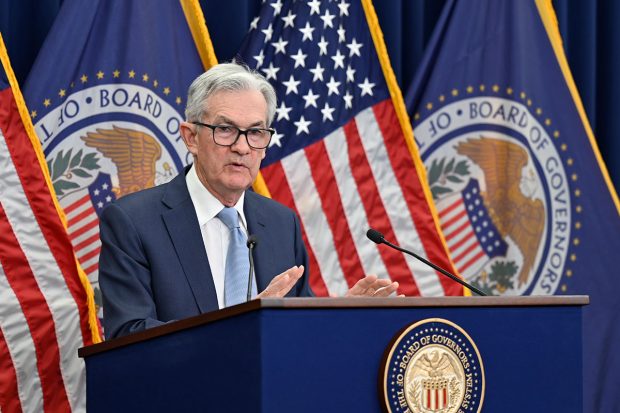
Jerome Powell Wednesday, Dec. 14, 2022 (Source: Federal Reserve).
The Federal Reserve said Wednesday it expects to raise rates about 60 basis points in 2023, after a year in which rates zoomed from close to zero to nearly 4.5%.
One result will be an easing of mortgage rates, which topped 7% this fall and were at 6.4% last week. Mike Fratantoni, chief economist of the Mortgage Bankers Association, said he expects the rates to drift down to about 5.2% by the end of next year.
“The housing market has certainly welcomed the recent decline in mortgage rates,” Fratantoni said. “This decline is reflecting market expectations of being near the peak for short-term rates, as well as increased signs that the U.S. is headed for a recession next year.”
 Mike Fratantoni
Mike Fratantoni
The Federal Reserve’s Open Market Market Committee raised the federal funds rate 50 basis points Wednesday to 4.25% to 4.50%. The median estimate among FOMC members is that the rate will be 5.1% by the end of 2023.
NAFCU Chief Economist Curt Long said that projection means the FOMC is likely to raise rates 25 basis points at each of its next two meetings: Jan. 31-Feb. 1 and March 22-23.
“However, if at that point price pressures are still ratcheting down, Fed officials are likely to hit the pause button on rate hikes earlier than they currently anticipate,” Long said.
 Curt Long
Curt Long
Federal Reserve Chair Jerome Powell said the most important question to the FOMC is how high it needs to raise rates. Ultimately, he said the most important question will be “how long we remain restrictive.”
“The strong view on the committee is that we’ll need to stay there until we’re really confident that inflation is coming down in a sustained way, and we think that that will be some time,” Powell said.
The Fed is projecting the core PCE inflation measure it follows will fall from 4.8% now to 3.5% by the end of 2023. In September it expected the rate would be 4.5% in December and fall to 3.1% by December 2023.
CUNA Senior Economist Dawit Kebede said inflation remains well above the Fed’s 2% long-term goal, although recent signs show it is cooling as gasoline prices fall, supply chain conditions improve and consumer demand shifts back to services from goods.
Kebede said high interest rates are slowing investments. While the labor market is currently strong, the Federal Reserve projects unemployment to rise from 3.7% in November to 4.6% by December 2023.
 Dawit Kebede
Dawit Kebede
“Historical data indicates such a large increase in unemployment within a year period signals the beginning of a recession,” Kebede said.
Powell disagreed. He said that the size of the Fed’s projected increase in the unemployment rate would not signal a recession because the Fed is also projecting economic growth — albeit slow growth. “That 4.7% is still a strong labor market,” Powell said.
Fratantoni repeated the MBA forecast that a recession will begin in the first half of 2023.
Powell hasn’t forecast a recession.
“I don’t think anybody knows if we’ll have a recession or not,” Powell said. “If there is a recession, nobody knows how deep it would be,” he said.
Powell said workers will suffer as joblessness rises, but he held out the hope that companies might be slower to lay off workers in a slow-growth economy because of an apparent “structural labor shortage.”
“The fact that there’s a strong labor market means that that companies will hold onto workers,” longer, he said. “It also means that the costs in unemployment may be less.”
“That’s a reasonably possible outcome,” he said. “We’ll see though.”
Comments
Post a Comment
Please no profanity or political comments.